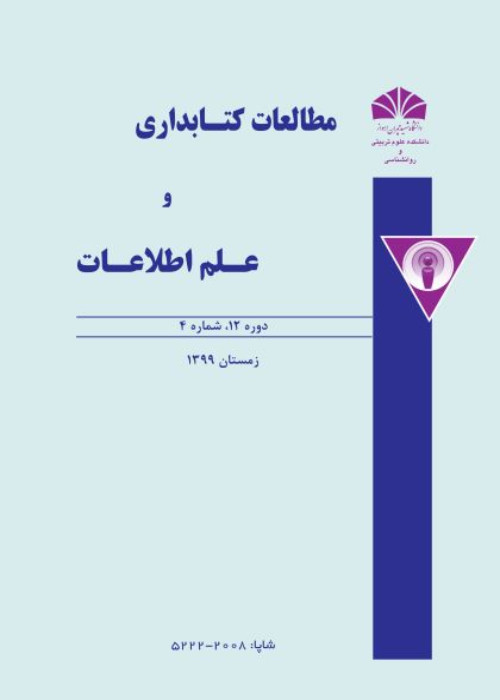Identifying and analyzing the main components of knowledge management in the public and government sectors of countries with Benchmarking approach
In the era of knowledge-based economy, most of large firms in the private sector are actively following; acknowledging, and implementing knowledge management techniques and instruments in order to reach competitive advantage, guarantees their survival and qualification. Knowledge management can foster the effectiveness and competitiveness of the government in the growingly changing environment. The public sectors and NGOs should face these challenges and take advantage of the opportunities resulting from globalization, knowledge-based economy and ICT development. However, lack of awareness of knowledge management is evident in the public sector. This might hinder the effective implementation of management actions in organizations for improving their performance. However, some public organizations have embraced the significance of knowledge management and offering services to the public and included knowledge management in their agenda. In Iran, the policy documents have highlighted knowledge management in the public sector. However, it is still an emerging area. Scrutinizing the experiences of various countries considering knowledge management in the public sector can highly contribute to its development in Iran. Hence, the current study primarily aimed to identify the factors contributing to the establishment of knowledge management in the public sector based on reviewing and exploring the knowledge management experiences in the public sector in various countries. To this end, the major research question was “What are the most important factors which should be considered for establishing knowledge management in the public sector?”
Taking into account that most knowledge management actions are included in research and development policies, to answer the research question, the nation-wide studies were divided into three categories, High R & D, Moderate R & D, and Low R & D according to the categorization presented by the European Union in 2007. As a result, such criteria as geographical location, percentage of R & D gross expenditures in GDP, their strategic importance, knowledge-based economy, and access to their information were taken into account in order to choose the countries for three R & D categories.In high R & D and with R & D budget over than 2.4% GDP, 6 countries were chosen from three groups including 3 countries from Europe (Swiss, Germany, and Austria), 2 countries from America (Canada, The United States), and 1 country from Asia (Korea),In moderate R & D and with R & D budget between 1.5% and 2.4% GDP, 2 countries were chosen from two groups including 1 country from Europe (England), and 1 country from Asia (China).In low R & D and with R & D budget less than 1.5% GDP, 4 countries were chosen from one group including 4 countries from Asia (India, Malaysia, Thailand, and Iran).The current study adopted a comparative qualitative approach and used framework analysis method. Having received the key concepts and ideas related to the research purposes, the researchers categorized them in a thematic framework. In order to form an analytical framework, the researchers used a continuous analysis for the qualitative data (coding summaries). Then, the experiences of the aforementioned countries were reviewed several times in order to discover the common meanings and patterns among their actions considering knowledge management. Afterwards, the actions related to knowledge management in the public sector were assigned codes and thereby, preliminary codes formed. Then, symmetrical codes were organized in the relevant thematic frameworks. The researchers finally defined, revised and analyzed the themes.
According to the research findings, the most important components of knowledge management establishment in the public and governmental sectors are human resources and training, technological infrastructure, organizational culture, learning and innovation, and organizational structure.
According to the findings, those knowledge management dimensions which should be considered in the public sector were as follows: • Human resources and education- one of the most important components of knowledge management is human resources since it mainly relies on individuals’ tendency to share and reuse knowledge. • Technological substructures- establishing and using internal and external networks efficiently are important actions which should be considered by organizations. However, using internal and external networks can contribute to knowledge management when they are intended to serve this purpose. Otherwise, they would not be effective. • Organizational and leadership culture- sharing knowledge is not a natural action in public organizations and requires changing the individuals’ mental model. In order to change individuals’ attitudes and overcoming obstacles, knowledge sharing culture should be developed. • Learning and innovation- knowledge management plays a vital role in supporting organizational learning since effective sharing would facilitate collective wisdom. Moreover, there is a strong positive relationship between knowledge management, its human dimension and innovation. • Organizational structure- The structure of the public organization is traditional and entails numerous hierarchies. The term “silo” is probably the best choice for describing this structure. It mismatches the requirements of knowledge management. In other words, knowledge management requires an effective structure that is a motivating and productive structure.
- حق عضویت دریافتی صرف حمایت از نشریات عضو و نگهداری، تکمیل و توسعه مگیران میشود.
- پرداخت حق اشتراک و دانلود مقالات اجازه بازنشر آن در سایر رسانههای چاپی و دیجیتال را به کاربر نمیدهد.



